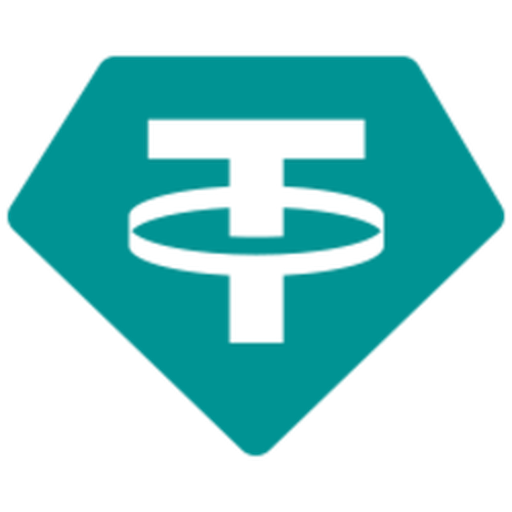Tether vs io.net – Price, Market Cap & Performance Compared
Which coin performs better – Tether or io.net?
We compare the current price (1 $ vs 0.56744 $), market cap (173 087 463 220 vs 116 088 419) and all-time high (1.32 vs 6.43).
Find out which one stands out right now!
Tether is currently trading at 1 $, while io.net stands at 0.56744 $. These cryptocurrencies differ not only in price but also in market presence.
The market cap of Tether is around 173 087 463 220, and io.net has about 116 088 419. Their respective all-time highs are 1.32 for Tether and 6.43 for io.net.
Daily trading volume and the 24h price change (-0.00189 % vs 6.69561 %) also offer key insights.
Compare all metrics now and see which coin fits your investment strategy best!
Tether
Tether is a widely-used stablecoin in the cryptocurrency market, designed to maintain a value equivalent to a traditional currency like the US dollar. It provides traders and investors with a stable asset to navigate the volatile crypto landscape, offering a flexible means to move funds quickly between exchanges. Despite its popularity, Tether has faced scrutiny regarding its reserve holdings and transparency, sparking ongoing debates within the financial community.
more informationio.net
Io.net is a promising cryptocurrency that focuses on enhancing Internet of Things (IoT) connectivity by providing a secure and efficient blockchain platform. It aims to revolutionize how IoT devices communicate by enabling seamless data sharing and interoperability across various networks. The project's innovative approach positions it well for future growth as IoT becomes increasingly integral to technology ecosystems.
more information

|

|
|
|
|
General Information |
|
|---|---|
|
Title
Tether
|
Title
io.net
|
|
Symbol
usdt
|
Symbol
io
|
|
Whitepaper
|
Whitepaper
|
|
Website
|
Website
|
|
Community
-
|
Community
|
|
Last Updated
2025-09-24 23:29
|
Last Updated
2025-09-24 23:28
|
Price Data |
|
|---|---|
|
Current Price $
1 $
|
Current Price $
0.56744 $
|
|
High 24h
1 $
|
High 24h
0.57995 $
|
|
Low 24h
1 $
|
Low 24h
0.52433 $
|
|
Price Change 24h
-0.00002 $
|
Price Change 24h
0.03561 $
|
|
Price Change % 24h
-0.00189 %
|
Price Change % 24h
6.69561 %
|
Market Data |
|
|---|---|
|
Market Cap
173 087 463 220
|
Market Cap
116 088 419
|
|
Total Volume
95 616 120 249
|
Total Volume
42 038 524
|
|
Market Cap Change 24h
288 328 065
|
Market Cap Change 24h
7 036 508
|
|
Market Cap Change % 24h
0.16686 %
|
Market Cap Change % 24h
6.45244 %
|
|
Return on Investment (ROI)
-
|
Return on Investment (ROI)
-
|
Supply and Availability |
|
|---|---|
|
Circulating Supply
173 039 417 063
|
Circulating Supply
204 409 524
|
|
Total Supply
173 039 417 063
|
Total Supply
799 998 919
|
|
Max Supply
-
|
Max Supply
800 000 000
|
Historical Data |
|
|---|---|
|
All Time High (ATH)
1.32
|
All Time High (ATH)
6.43
|
|
ATH Change %
-24.39867 %
|
ATH Change %
-91.16764 %
|
|
ATH Date
2018-07-24 00:00
|
ATH Date
2024-06-12 21:14
|
|
All Time Low (ATL)
0.57252
|
All Time Low (ATL)
0.50704
|
|
ATL Change %
74.71457 %
|
ATL Change %
11.93366 %
|
|
ATL Date
2015-03-02 00:00
|
ATL Date
2025-09-05 15:05
|
Tether
Understanding Tether: A Stablecoin Powerhouse
Tether (USDT) is a leading name in the world of stablecoins, a class of cryptocurrency designed to facilitate transactions by maintaining a stable value. Unlike volatile cryptocurrencies like Bitcoin or Ethereum, stablecoins like Tether aim to provide users with the stability of fiat currency, while still leveraging the benefits of blockchain technology.
The Mechanism Behind Tether's Stability
Tether achieves its stability by pegging its value to traditional fiat currencies, primarily the U.S. Dollar. Each Tether token is reportedly backed by an equivalent amount of fiat currency held in reserve. This 1:1 backing mechanism is key to maintaining the coin's stable value, as reflected in its market price which typically hovers around 1 USD.
Historical Development and Milestones
Tether's inception dates back to 2014, and since then, it has played a pivotal role in demonstrating the practical use case of stablecoins within the crypto ecosystem. Its journey has seen significant milestones, including reaching its all-time high of $1.32 in July 2018, and experiencing its low at $0.572521 in March 2015. These deviations, while noteworthy, are rare occurrences in Tether's overall history, underscoring its primary objective of price stability.
Advantages of Using Tether
The primary advantage of Tether is its stability, making it a safe harbor for investors during times of high volatility in the broader cryptocurrency market. By offering price predictability, it facilitates more efficient trading, lending, and arbitrage, making it an indispensable tool for crypto exchanges and users alike. Moreover, Tether's utility is further enhanced by its widespread acceptance and high liquidity.
Challenges and Controversies
Despite its widespread use, Tether has faced scrutiny regarding its claims of full fiat backing. Critics have raised concerns about transparency, regulatory challenges, and the adequacy of its audited reserves. These issues have occasionally prompted regulatory attention and calls for greater transparency and accountability from Tether’s management.
Future Outlook for Tether
The future of Tether rests heavily on its ability to maintain trust and transparency with users and regulators alike. As the crypto market matures, Tether is expected to continue playing a significant role, particularly if it can navigate the evolving regulatory landscape successfully. Its position as a stablecoin market leader suggests that it will remain a cornerstone in crypto trading, offering a reliable alternative to more volatile assets.
In conclusion, Tether stands out as a critical tool within the cryptocurrency space, providing much-needed stability for traders and businesses. Its ongoing relevance will depend on its adaptability to regulatory demands and its continued assurance of transparency and full reserve backing to its user base.
io.net
Exploring io.net: A Paradigm Shift in Digital Transactions
io.net has quickly emerged as a noteworthy participant in the dynamic world of cryptocurrencies. With its innovative architecture and robust community support, it possesses unique characteristics that distinguish it from other digital assets. In this article, we'll delve into the advantages and disadvantages of the io coin, its historical performance, and speculate on its future potential.
The Unique Proposition of io.net
The primary advantage of io.net lies in its ability to facilitate seamless transactions and high scalability, making it an attractive option for developers and consumers alike. Its architecture ensures faster transaction speeds and lower fees compared to many of its competitors. Additionally, io.net's strong developer community continuously rolls out updates and enhancements, increasing its usability and security.
Moreover, io.net's transparent governance model is designed to be inclusive, allowing community members to contribute to decisions about the network's future. This democratized approach ensures that io.net remains adaptive and aligned with user needs, an aspect much appreciated in the crypto space.
Challenges and Considerations
Despite its many strengths, io.net is not without its challenges. The cryptocurrency market is notoriously volatile, and io.net is no exception. The price has experienced significant fluctuations, which can deter more risk-averse investors. Furthermore, as a relatively new player, it faces the challenge of building a more substantial user base to gain wider acceptance and trust in the mainstream financial market.
Additionally, io.net's dependency on continuous technological innovation means it must keep up with rapid advancements, requiring consistent input from its development community. Failure to adapt swiftly could impact its competitive edge.
Historical Performance Analysis
Since its inception, io.net has witnessed notable highs and lows. The coin reached an All-Time High (ATH) of $6.43 in mid-2024, illustrating its potential for growth, but also highlighting its volatility. Currently priced at $1.83, it has seen a significant decline from its ATH — a decrease of over 71%. However, it remains above its All-Time Low (ATL) of $1.31, showing resilience amidst market fluctuations.
The market cap of io.net has shown an impressive increase, with a 24-hour change of over 4.51%, demonstrating a healthy trading volume and continued investor interest. With a circulating supply of approximately 120 million coins against a total supply of 800 million, io.net's market dynamics suggest there is room for growth as more coins are released.
Future Prospects and Outlook
Looking ahead, the future of io.net appears promising but circumspect. With a strong foundational technology and an active community, it is well-positioned to leverage trends in digital finance, such as decentralized finance (DeFi) and even integration with the Internet of Things (IoT). However, sustained success will require strategic partnerships and continuous technological innovation to differentiate itself from an ever-expanding roster of cryptocurrencies.
Investors and analysts alike should keep a close watch on io.net's developments. As it expands its ecosystem and potentially enters new markets, it could redefine its position in the digital currency hierarchy and deliver substantial returns to its supporters.
Conclusion
In conclusion, io.net offers a fascinating study of a cryptocurrency carving out its niche under the spotlight of the digital financial revolution. While not devoid of challenges, its strengths in scalability and governance could see it becoming a critical player in the years to come. Investors interested in high-risk, high-reward opportunities might find io.net a compelling addition to their portfolio. As always, thorough research and risk assessment are advisable before engaging with any cryptocurrency investment.

